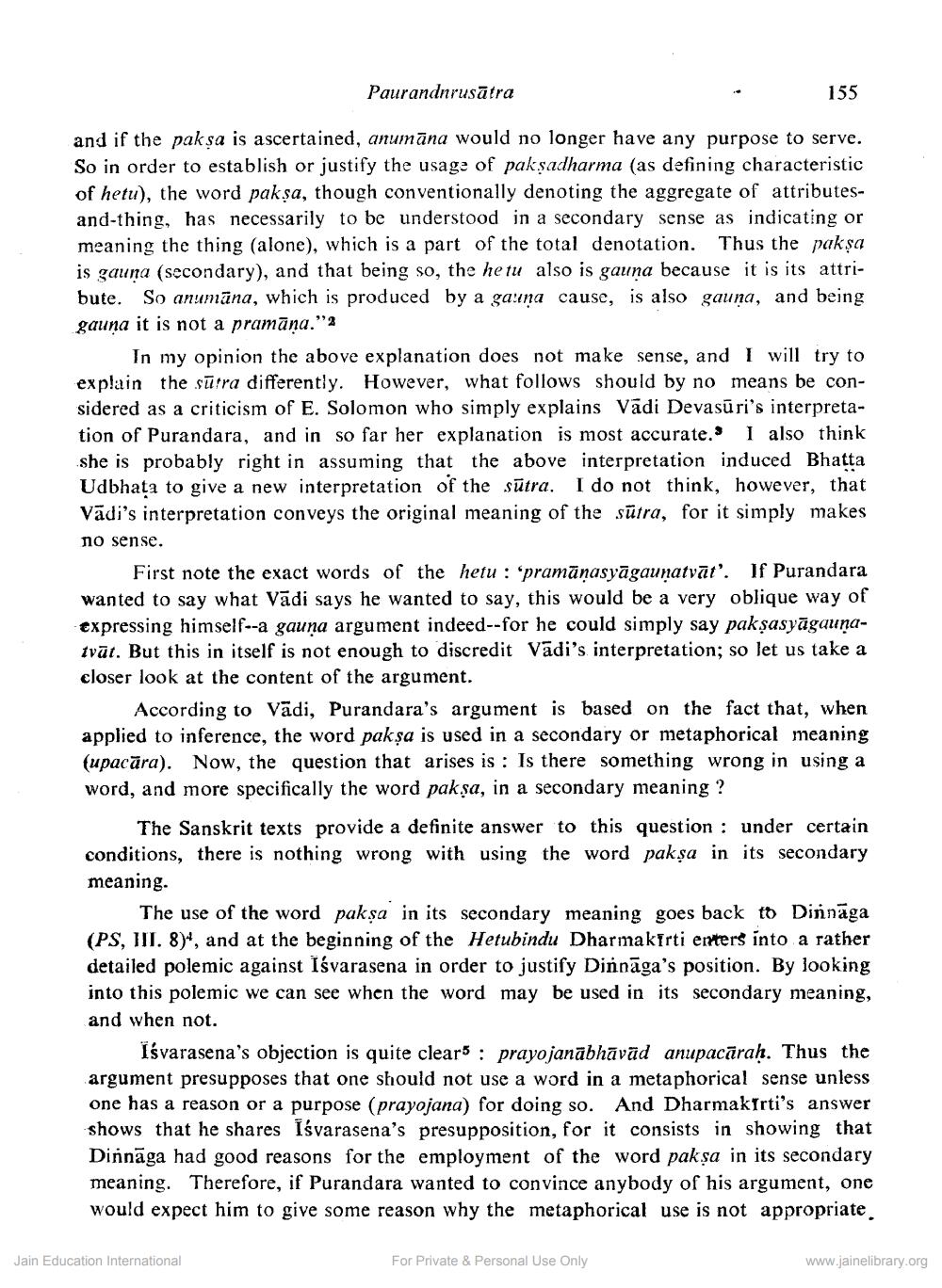Book Title: Paurandara Sutra Author(s): Eli Franco Publisher: Z_Aspect_of_Jainology_Part_3_Pundit_Dalsukh_Malvaniya_012017.pdf View full book textPage 2
________________ Paurandnrusātra 155 and if the paksa is ascertained, anumana would no longer have any purpose to serve. So in order to establish or justify the usage of pakṣadharma (as defining characteristic of hetu), the word paksa, though conventionally denoting the aggregate of attributesand-thing, has necessarily to be understood in a secondary sense as indicating or meaning the thing (alone), which is a part of the total denotation. Thus the pakṣa is gauna (secondary), and that being so, the he tu also is gauna because it is its attribute. So anumana, which is produced by a gauna cause, is also gauna, and being. gauna it is not a pramāṇa." In my opinion the above explanation does not make sense, and I will try to explain the sutra differently. However, what follows should by no means be considered as a criticism of E. Solomon who simply explains Vadi Devasūri's interpretation of Purandara, and in so far her explanation is most accurate." she is probably right in assuming that the above interpretation induced Bhatta Udbhata to give a new interpretation of the sutra. I do not think, however, that Vadi's interpretation conveys the original meaning of the sutra, for it simply makes no sense. First note the exact words of the hetu: pramäṇasyägauṇatvät. If Purandara wanted to say what Vädi says he wanted to say, this would be a very oblique way of expressing himself--a gauna argument indeed--for he could simply say pakṣasyagauṇaIvat. But this in itself is not enough to discredit Vädi's interpretation; so let us take a closer look at the content of the argument. According to Vadi, Purandara's argument is based on the fact that, when applied to inference, the word paksa is used in a secondary or metaphorical meaning (upacāra). Now, the question that arises is: Is there something wrong in using a word, and more specifically the word pakṣa, in a secondary meaning? The Sanskrit texts provide a definite answer to this question: under certain conditions, there is nothing wrong with using the word paksa in its secondary meaning. The use of the word paksa in its secondary meaning goes back to Dinnaga (PS, III. 8), and at the beginning of the Hetubindu Dharmakirti enters into a rather detailed polemic against Iśvarasena in order to justify Dinnaga's position. By looking into this polemic we can see when the word may be used in its secondary meaning, and when not. Iśvarasena's objection is quite clears: prayojanābhāvād anupacāraḥ. Thus the argument presupposes that one should not use a word in a metaphorical sense unless one has a reason or a purpose (prayojana) for doing so. And Dharmakirti's answer shows that he shares Iśvarasena's presupposition, for it consists in showing that Dinnaga had good reasons for the employment of the word paksa in its secondary meaning. Therefore, if Purandara wanted to convince anybody of his argument, one would expect him to give some reason why the metaphorical use is not appropriate Jain Education International For Private & Personal Use Only www.jainelibrary.orgPage Navigation
1 2 3 4 5 6 7 8 9 10
